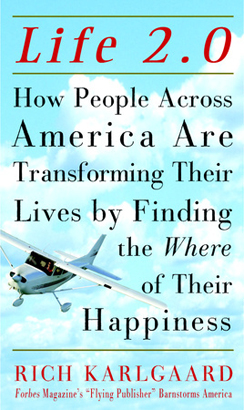It's never too late to be a late bloomer
Certain kinds of flowers are LATE BLOOMERS ... not showing their true colors until long after most of the others have. The same can be true for people, too. Our Cover Story is reported by Susan Spencer of "48 Hours":
Meet the bulldog Zelda -- pampered, adored, and really spoiled by owner Carol Gardner. And why not? Gardener says Zelda changed the course of her entire life, which in 1997 needed changing.
"I was recently divorced -- hence, depressed, hence in debt, and having a very difficult time," Gardner said. "And so a friend said, 'Sweetheart, you need to either get a therapist or a dog.'"
So at 52, Gardner adopted Zelda, an English Bulldog, though she had scarcely the money to feed her. Then she learned a nearby pet store was having a contest:
"The prize was 40 pounds of dog food every month for a year," Gardner said.
All she had to do was design a holiday greeting card. So she did what anyone would: she put Zelda in a Santa hat and sat her down in a bubble bath.
"And I kept saying, 'Zelda, this is about food! It's about food!' And so she got on the bathtub. And then I took the bubbles and put them around her face and stepped back with my disposable camera and took that picture."
Her card read, "For Christmas, I got a dog for my husband. Good trade, huh?" And it won the contest.
It also inspired Gardner. Soon Zelda was fronting clever cards in everything from ballet outfits to devil costumes. Sales of Zelda cards topped a million within a year.
Gardner's success has outlived her Bulldogs (this is Zelda number three). But every Zelda today is an empire, with thousands of Zelda items, from plush toys to calendars. There are Zelda cell phone covers, figurines, snow globes, lamps, clothing, jewelry, cookie jars.
Zelda may have her limits, but Gardner doesn't seem to, with a multi-million international company that she started at 52. "I consider myself definitely a late bloomer," she said.
"What a late bloomer really is," said Forbes Magazine editor Rich Karlgaard, "is somebody who blossoms on their own schedule."
And the list of late bloomers is long. Julia Child ("The egg can be your best friend!") who made her TV debut at 50. Martha Stewart kicked off her catering business at age 40. Peter Roget didn't even start working on his thesaurus until he was 61.
Karlgaard urges we forget the famous words of one early bloomer: "F. Scott Fitzgerald liked to say there were no second acts in American life. I think he was describing his own life, quite frankly. He achieved enormous success at age 25, and he died at age 44. So he didn't have a second act."
Yet Frank McCourt wrote his first novel, "Angela's Ashes," at age 63, and won the Pulitzer Prize at 66 -- evidence, said Karlgaard, "that people have this enormous capacity to blossom at any age."
So now you may be wondering, just how late is TOO late to bloom? Well, take heart from Harland Sanders. The former insurance salesman and one-time gas station operator was 65 when he cashed his Social Security check and launched something known as Kentucky Fried Chicken.
But not even the Colonel could match Grandma Moses, who took up painting in her late 70s -- an inspiration to anyone trying something new.
Even your humble correspondent, who made a command decision that before she hit a certain unspeakable milestone birthday, she would learn to ride a unicycle.
The months following that dramatic announcement proved that unicycling is really hard. I'm still dreaming of blooming late.
Late for what?, asked Scott Barry Kaufman, the scientific director at the University of Pennsylvania's Imagination Institute. The negative connotation is that you've done something wrong.
Kaufman says it's never too late to be a late bloomer.
Spencer asked, "So if somebody comes to you and says, 'I really wanna do X,' at what age would you say, realistically, 'You know, it's probably not happening'?"
"I'm all about generating possibility," said Kaufman. "I'm all about giving people opportunities and seeing where the cards lie. Now, if that person is 90 and they say, 'I wanna be in the NBA,' maybe I would say, 'Look, even Michael Jordan at age 40 started to show some serious declines relating to his motor systems.'"
But a poet? "Certainly a possibility, because you're only limited by how many years you have on this Earth, right?"
"The AARP is going to love you!" laughed Spencer.
And now there's more hope than ever before: We're living longer, which means even more time to bloom -- assuming our minds stay sharp, which is not out of the question.
Rich Karlgaard says the recent research shows how "enormously plastic" the human brain really is. "We retain the capability of learning new things quite late along our lifetime."
So why aren't there more people today like Grandma Moses or Colonel Sanders?
Professor Dean Keith Simonton, a psychologist at the University of California, Davis, says, "It's much more common to see early bloomers than it is to see late bloomers, because you do have a certain stigma associated with it."
Simonton says one big roadblock to late-blooming -- if not our aging brains -- is our close-minded culture.
"When I applied to Stanford University Graduate School out of college, I was kind of surprised to find out that it actually had written on the application, 'If you're over 40, you cannot apply,'" he told Spencer.
Why? "Because the idea is, if you're over 40, you're already over the hill, so why are you even trying to go to graduate school?"
The rules may have changed since then, but the mindset remains.
Karlgaard said, "There are people of latent skills out there that, because they didn't test well at age 16 or 17, might not have gone to the right school, might have made a couple of career mistakes, but suddenly they find themselves, and there is this enormous talent to be tapped.
"And they neither have the confidence -- society doesn't even realize -- that there's not this process of discovery, so I think that's a human tragedy really."
So to all you potential late-bloomers still waiting to bloom, forget "late" -- just bloom!
Your future is bright, even if, as Zelda once noted, "Old age comes at a very bad time."
- Are elite athletes born or made? ("Sunday Morning," 04/06/14)
- Does your career need a second act? (CBS Moneywatch, 01/11/13)
- Career changes: 5 success stories (CBS Moneywatch, 04/12/11)
- Retirement income: Plan your second career (CBS Moneywatch, 01/25/10)
- New jobs: 8 lessons from real-life career switchers (CBS Moneywatch, 11/11/09)
For more info:
- zeldawisdom.com
- Zelda Wisdom Greeting Cards
- Forbes Magazine editor Rich Karlgaard
- "Life 2.0: How People Across the Country Are Transforming Their Lives to Make Their Own American Dream" by Rich Karlgaard (Basic Books) - Available in eBook format
- Imagination Institute, at the University of Pennsylvania (Scott Barry Kaufman, scientific director)
- scottbarrykaufman.com
- "Ungifted: Intelligence Redefined - The Truth About Talent, Practice, Creativity, and the Many Paths to Greatness" by Scott Barry Kaufman (Basic Books)
- "Confessions of a Late Bloomer" by Scott Barry Kaufman (Psychology Today)
- Dean Keith Simonton, Distinguished Professor, Department of Psychology, University of California, Davis
- "The Wiley Handbook of Genius" - Edited by Dean Keith Simonton (Wiley)

